Sandra C. Lopez's Blog, page 382
April 3, 2015
Review: GYPSY HUNTED by Andrea Drew
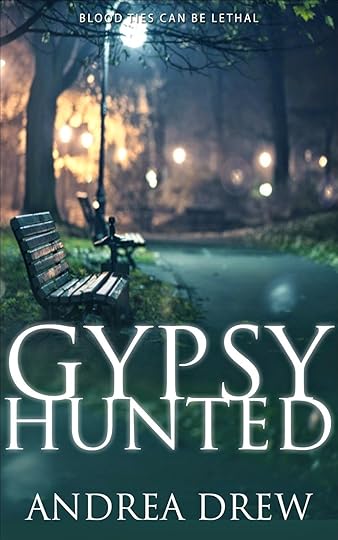 A psychic telepath, one who is able to speak to the dead, stumbles onto a kidnapping and, as a result, loses her ability to speak. Now she must harness her abilities to communicate all the information she knows to a reluctant niece before he strikes again.
A psychic telepath, one who is able to speak to the dead, stumbles onto a kidnapping and, as a result, loses her ability to speak. Now she must harness her abilities to communicate all the information she knows to a reluctant niece before he strikes again. Let me just say that I love stories involving psychics, and Gypsy Hunted seemed like an interesting read; however, it didn't give me the eager thrill that I was expecting.
First of all, how could Gypsy have dialogue with anyone? I thought she was paralyzed and couldn't speak, which is why she had to use her "telepathic" voice.
Second, the story was slow and mediocre, and the writing wasn't too overly impressive.
Plus I think I was missing some pages in my e-copy because there were giant confusing leaps from one section to another, some in mid-sentence, therefore, reading it was a bit of a struggle. Had I been able to get the full story, I think I might've had an average impression on it.
My rating: 2.5 stars
Published on April 03, 2015 07:51
April 2, 2015
Review: THE COLOR OF HAPPINESS by K.P. Gazelle
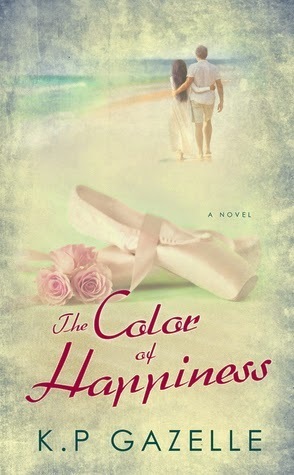 Faith just can't seem to do anything right.
Faith just can't seem to do anything right. "While I enjoyed hanging out with friends on weekends, my parents wanted to hear nothing of it. While I liked wearing long skirts and full sleeve tops, sometimes even on the hottest of days, people outside my family constantly badgered me about why I didn’t wear short shorts or skimpy tank tops like other girls my age did. It seemed that no matter what I wanted to do or who I wanted to be, something else was always expected from me and of me. All I wanted was for people, my family included, to accept me as who I was without judgment." (8)
What began as shallow teasing soon becomes too much. When did simply being yourself suddenly become an invitation for punishment? For Faith, being herself is a constant battle, but yet she trudges on.
The best thing about Faith is that she doesn't succumb to the superfluous "necessities" of high school life, like the "need" to go to a Sadie Hawkins dance. Of course, that kind of changes when she meets Alex, the cool jock whom she stereotyped at not being "book smart." At times, Faith was a little too silly, but Alex reveled on it, praising her and encouraging her for it.
So what is the color of happiness? My guess is whatever you make it.
Filled with a cast of harebrained, generic characters, the story is a quick stroll through the high school monotony and teenage angst that plays along with Faith's desire for dance. Even though I'm not into dance, it still doesn't sway the fact that this is a wholesome dedication to anyone struggling through the barriers of peer pressure and stereotypes. The message: It's okay to be you and do what you like.
My rating: 3.5 stars
Published on April 02, 2015 08:36
April 1, 2015
Review: MEMOIRS OF A MAN by Anon
 I've always wanted to know what went on inside a man's brain, so naturally this seemed like a good read. This is a collection of stories by anonymous writers--a bunch of men without a clue on children, women, and life.
I've always wanted to know what went on inside a man's brain, so naturally this seemed like a good read. This is a collection of stories by anonymous writers--a bunch of men without a clue on children, women, and life. At first, the stories seemed to be funny, and I wanted to enjoy the unadorned, juvenile jocularity of the male perspective. What I actually got was a pedestrian mass of lewd remarks and a perplexing order of character actions and dialogue. I was confused of what was going on most of the time. I mean, who were these people? Why didn't these stories have a title? What was the whole point in it?
Additionally, the writing was shoddy and unorganized, and I just didn't like it as much as I thought I would.
My rating: 2 stars
Published on April 01, 2015 08:35
March 13, 2015
Review: LYRIC THE UNKNOWN by Jim Maher
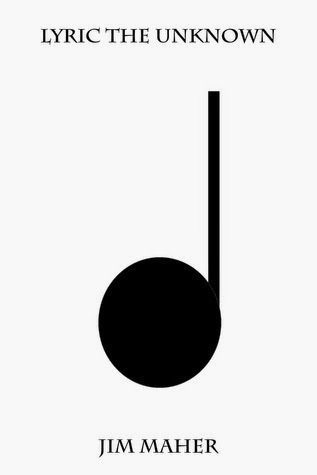 I've never played an instrument in my life; I can't imagine the violin would be the easiest one to learn, but surely it can't be that difficult. Nonetheless, Lyric hates playing it.
I've never played an instrument in my life; I can't imagine the violin would be the easiest one to learn, but surely it can't be that difficult. Nonetheless, Lyric hates playing it. Quick and easy to read, this story is full of that youthful exuberance, almost silly in a way. I still don't quite understand how the world suddenly came to an end. Apparently, it was being swallowed up by this "blackness," like the blob. Where did that come from?
Alone, in an empty world, Lyric had only one thing left: her violin. Then a strange cast of characters show up out of nowhere telling her that she is "the unknown," an alien in their world. Okay, so the aliens took over Earth, right? This whole new world just seemed cosmic and surreal, giving the reader a small claim of muddled doubt. And all these "councillors" don't make things any clearer. So what's the deal here? Is Lyric supposed to save their world to get back to hers? And what's up with all these tests? And was she supposed to combat the obstacles with "the music of her heart?" Well, in any sense, I would say that they did pick the right candidate then as Lyric is a bright and courageous kid. I think most children would be able to relate to her in some way.
Enriched with a language so simple and clean, this is an okay kid's story, best suited for those who like bogus adventure tales.
My rating: 3 stars
Published on March 13, 2015 08:22
March 12, 2015
Review: THE MAN WHO LOVES TOO MUCH by John Rachel
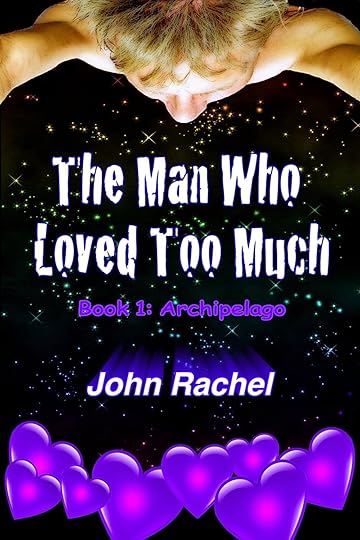 This is the story of Billy Green, a precocious young boy with a cruel father and a coddling mother who deemed him “special” from the start.
This is the story of Billy Green, a precocious young boy with a cruel father and a coddling mother who deemed him “special” from the start. Full of curiosity, the kid loved school and loved to learn. His Catholic school was a “Toys R’ Us to make you smart.” Of course, much of the history and debate involving the church did not interest me so much.
The fascinating thing was that although the story centers on Billy from childhood to adulthood, story expands slightly to the other characters, enlightening readers on their bio and history (ex: his mom, Sister Bernadette, Sister Mary, etc.) Sister Mary’s story was particularly sad.
Though sheltered by his mom, Billy had some unsettling experiences in regards to sex—things that made you go WTF!? At times, it was a tad vulgar and crude. I wondered if it was really necessary.
I liked the list that Billy considers the things he learned so far.
Nothing is sacred
God is calling in sick
Everybody is dispensable
People are in pain
People will do anything to make the pain go away
…
People create their own heaven
People create their own hell
Everybody is both beautiful and ugly
Everybody is insecure
Life is a race to the top
There are no winners
It is impossible to tell the truth
People lie to themselves then to others
Freedom is an illusion
Life is a train to nowhere
Sex destroys love
Love destroys sex
Love makes the world go round
The world stopped spinning a long time ago
[Ch. 2]
I thought this list read almost like a poem, both haunting and beautiful.
Billy is a smart and perceptive kid, who was often bullied by his peers, which he speaks extensively on some, making it, at times, for laborious reading.
“If [the missing concept and perspective] had been there, people would have had to see how bogus and childish and truly embarrassing all the hand-wringing and heart-wrenching and torrential downpour of tears really was—how infantile and cowardly the collective response of the American people was to the events of Sept. 11.” (LOC 1852) I totally agree! In fact, Billy makes some excellent points here.
However, in spite of a few minor oversights, this was still a well-written and thought-provoking story. It’s a critical and comprehensive study on sex, people, social conduct, marriage, religion, America—life.
Honest and clever, story is colorfully rendered in pale beauty and striking candor.
My rating: 4 stars
Published on March 12, 2015 08:07
March 11, 2015
Review: JAMIE’S GAMBLE by Gregg Bell
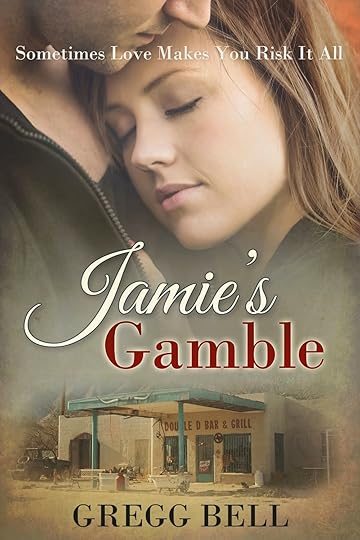 At 21-years old, Jamie has run away from her controlling father and will prove to him that she can make it on her own and doesn’t need his Fortune 500 company. Right away her strive for independence and self-reliance was admirable. Reader can sense the fear and tension as she wanders into Texas with a bag harboring little money and a revolver.
At 21-years old, Jamie has run away from her controlling father and will prove to him that she can make it on her own and doesn’t need his Fortune 500 company. Right away her strive for independence and self-reliance was admirable. Reader can sense the fear and tension as she wanders into Texas with a bag harboring little money and a revolver. When a job offer falls through, Jamie must waitress at a honky tonk bar, where she meets Ricky, a blond fisherman. But something is wrong in Texas. Apparently, someone is killing Mexican prostitutes.
I liked how the book added awareness to the media image played on minorities. It’s amazing how little to no attention we receive.
But Jamie feels it’s her duty to stop the killings, even if it means facing the Texas Ku Klux Klan, who also happens to run the town.
Story is a romance mixed with the politics of injustice and the hunt for a cold-blooded killer. Full of corruption and excitement, this is a well-written, fast-paced tale you’ll enjoy ‘til the end.
My rating: 4 stars
Published on March 11, 2015 08:16
March 6, 2015
Review: UNDERSTANDING SIN by Cleia M.
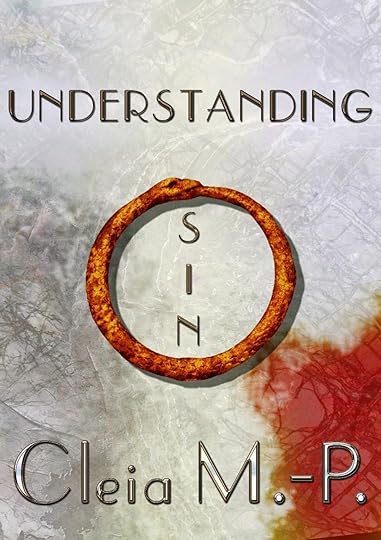 Thomas Fischer seems to have it all—lovely wife, money, a mansion, corporate career, even an insignificant affair. Yep, he was the arrogant bastard you just love to hate. Rachel is the pathetically devoted, bored, and lonely wife, who is sick and tired of Thomas’ affairs. But this was just a “political marriage”—a marriage just for show and not love.
Thomas Fischer seems to have it all—lovely wife, money, a mansion, corporate career, even an insignificant affair. Yep, he was the arrogant bastard you just love to hate. Rachel is the pathetically devoted, bored, and lonely wife, who is sick and tired of Thomas’ affairs. But this was just a “political marriage”—a marriage just for show and not love. The pace is intermittent and fleeting. The reader doesn’t get a chance to absorb the characters or the plot; story quickly shuffles from one character to another, missing out on scenes that could’ve been interesting, like, for instance, Thomas walking in on his wife in bed with another man.
Reading on, more and more characters come in to play. Initially, I was under the impression that the story centered on Thomas and his “sins,” but it didn’t seem to hold true. There were just too many characters. Additionally, when I found out that the new apartment might be haunted, I was expecting Thomas to go through a “Devil’s Advocate” thing with maybe even an actual devil showing up. That would’ve been awesome.
Sadly, this book was not what I expected.
My rating: 2 stars
Published on March 06, 2015 08:18
March 4, 2015
Review: THE PUSHERS by Adam E. Morrison
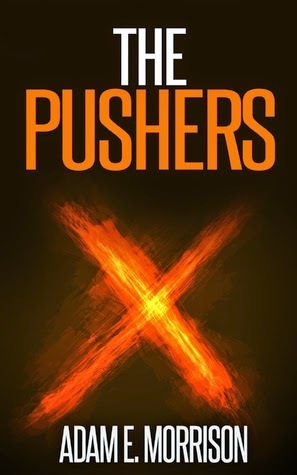 Choices. We make them every day. But what if one last choice determined your fate? And you didn't know it?
Choices. We make them every day. But what if one last choice determined your fate? And you didn't know it?All it might take is a push in the right direction. Or the wrong one.
My thoughts: Novel centers around a guy named Cal and a cast of flat, ambiguous characters. I found myself deciphering the point in all of it. The plot summary didn’t lend too much information on the story, yet I was willing to try to figure out the mystery. Driving a slow pace, the story only encouraged bemusement and monotony.
Overall, this was a mediocre story that didn’t grab me as much as I thought it would.
My rating: 2 stars
Published on March 04, 2015 07:49
March 3, 2015
Review: TWO FOR THE HEART by Ekta R. Garg
 This book is basically two stories in one.
This book is basically two stories in one. In “The Proposal,” Akshay and Poojah marry and divorce 48 hours later, shirking their Indian heritage tradition. Off the bat, I ask why.
In “Remembrance,” Rose is making funeral arrangements for her dead father and is re-acquainted with a sister that’s been in an accident.
First of all, I failed to see the connection between the two stories. One was clearly a multicultural romance and the other was loaded drama. Clearly, the stories were supposed to have an emotional impact, but I found them daunting and tedious with mildly forgettable characters.
My rating: 2 stars
Published on March 03, 2015 08:35
February 25, 2015
Review: HER PERFECT REVENGE by Anna Mara
 Like Carrie, this story begins with a young girl’s harassment by her peers. It all begins when 14-year old Christina experiences the worst day of her high school life. How traumatized must she have been when the kids threw condoms at her? Why is it always the good girls? It was all Billy Havenwood’s fault; he ruined her life.
Like Carrie, this story begins with a young girl’s harassment by her peers. It all begins when 14-year old Christina experiences the worst day of her high school life. How traumatized must she have been when the kids threw condoms at her? Why is it always the good girls? It was all Billy Havenwood’s fault; he ruined her life. 16 years later, Christina transformed into a hot babe. Of course, as her luck would have it, she runs into her high school nightmare. Billy was still rich, handsome, and still a jerk. At that point, Christina vowed for revenge, to ruin his life like he ruined hers. You go, girl!
I liked Christina! She was cute, sweet, clumsy, and crafty. I loved her bold gumption, especially after realizing that Bill was so arrogant and smug. How dare he flirt with her! And how dare she like it! As her friend pointed out, “the opposite of love is indifference, not hate. Love and hate are actually this close.” (39) No, but Christina claimed that “with men, what you see is what you get, and she saw a bastard.” (230) She won’t give up until she discovers his juicy secrets, and Bill was hiding something. Then he threw a tailspin of a scheme of asking her to pretend to be his fiancé so his rich daddy won’t cut him off.
The attraction between Bill and Christina was mutual as they go pretending to be “in love.” Seeing them play “house” was actually kind of nice. I would love to play “wife” with Bill, who was a lean, muscular, take-charge kind of guy. His jealousy over Christina’s “boyfriend” was so cute. They were both very good liars, which made them perfect for each other.
Bill’s father, William, was such a ball-buster with throwing all kinds of challenges at the couple, making it harder and more awkward for them. It was definitely a battle of father vs. son with Christina in the middle. After all, “it took a scammer to scam a scammer.” (72) Each new twist threw you in for a loop.
Written in a universal omniscient narrative, this book was a gripping read. This was all about
 revenge and blackmail…by ALL (everyone had a reason for it.) The schemes were intricately crafted and weaved together perfectly for a real page-turner. It was like watching a TV sitcom—sweet, romantic, and funny.
revenge and blackmail…by ALL (everyone had a reason for it.) The schemes were intricately crafted and weaved together perfectly for a real page-turner. It was like watching a TV sitcom—sweet, romantic, and funny. Of course, this book was definitely a re-hash of the Carly Pope movie, This Time Around, which was about a girl exacting revenge on her old nemesis but ends falling for him instead. Still, I enjoyed the fun and quirks by both the novel and the movie.
Other novels by Anna Mara: Why Romeo hates Juliet My rating: 5 stars
Published on February 25, 2015 07:56



